Woke board proposes national slavery monument at James Madison’s home
Woke activists in charge of Montpelier — the home where James Madison conceived the US Constitution — plan to build a massive national slavery monument on the grounds of the founding father’s Virginia plantation.
Critics and historians say such a memorial would upend the fourth president’s legacy and become the center of attention at his own home.
The revelation emerged last week during Montpelier’s inaugural “Constitution Month,” a series of tours and talks commemorating the 235th anniversary of the document’s signing in 1787.
Members of the board — who expelled Montpelier’s former leadership in May after a bitter public battle — announced their monument plans on Sept. 17 at a sparsely attended panel session called “Equal Power-Sharing at Montpelier” at the David M. Rubenstein Visitor Center on the mansion’s grounds.
“The home of the Constitution should be the place that recognizes the contributions of descendants of the enslaved communities across America,” declared Rev. Larry Walker, a trustee.
“We want to make this a national monument to the ‘Invisible Founders,’” Walker said — slaves who, he believes, deserve equal credit for the Constitution and the Bill of Rights because their labor financed the private lives of Madison, Thomas Jefferson, and many of the nation’s early leaders. Madison owned 38 enslaved African Americans when he died in 1836 — and unlike George Washington, freed none of them in his will.
The monument plan is akin to a victory dance, one critic charged.
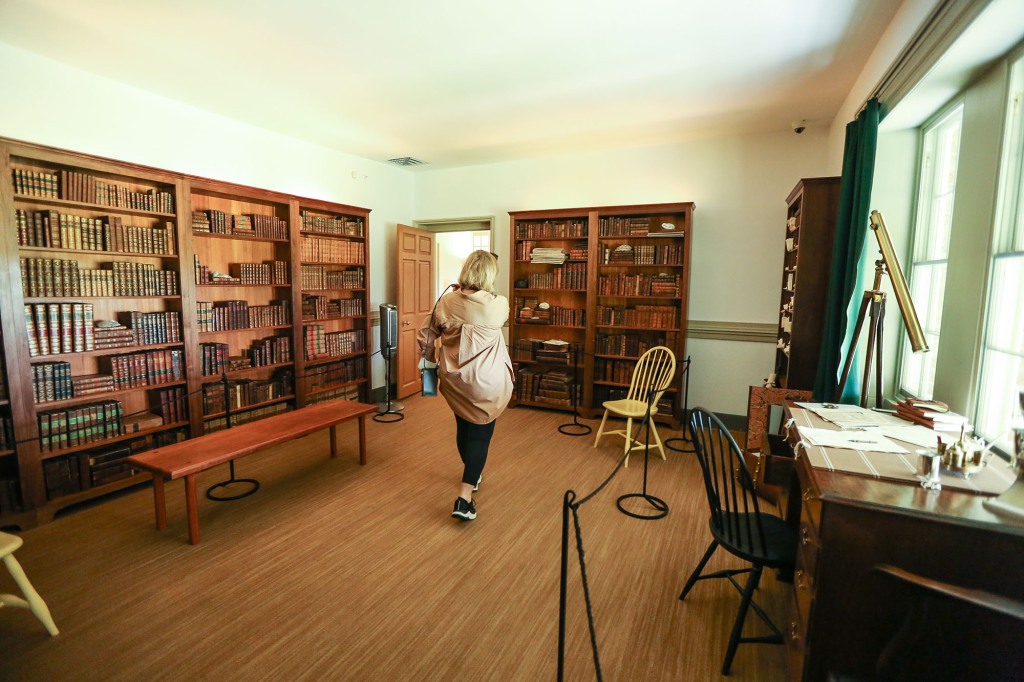
“These people are doing what any totalitarian regime would do,” said Douglas MacKinnon, author of “The 56,” about the signers of the Declaration of Independence. “They want to create a whole new narrative not based on reality. As they say, the victor gets to write the history — and now our history is being rewritten before our eyes. ”
In July, The Post described the ire of tourists who expected to learn how Madison crafted our government’s essential documents on their visits to Montpelier — only to find high-tech exhibits on slavery and racial conflicts taking precedence over his life story, thanks to lavish funding from Rubenstein and other globalist donors.
Board chairman James French, who joined Walker on the Sept. 17 panel, displayed a photo of the iconic Lincoln Memorial in Washington, DC “to illustrate … our desire to create a national monument for the legacy of those who were enslaved,” while CEO Elizabeth Chew listed the monument plan as one of four “big future projects” on the museum’s agenda.
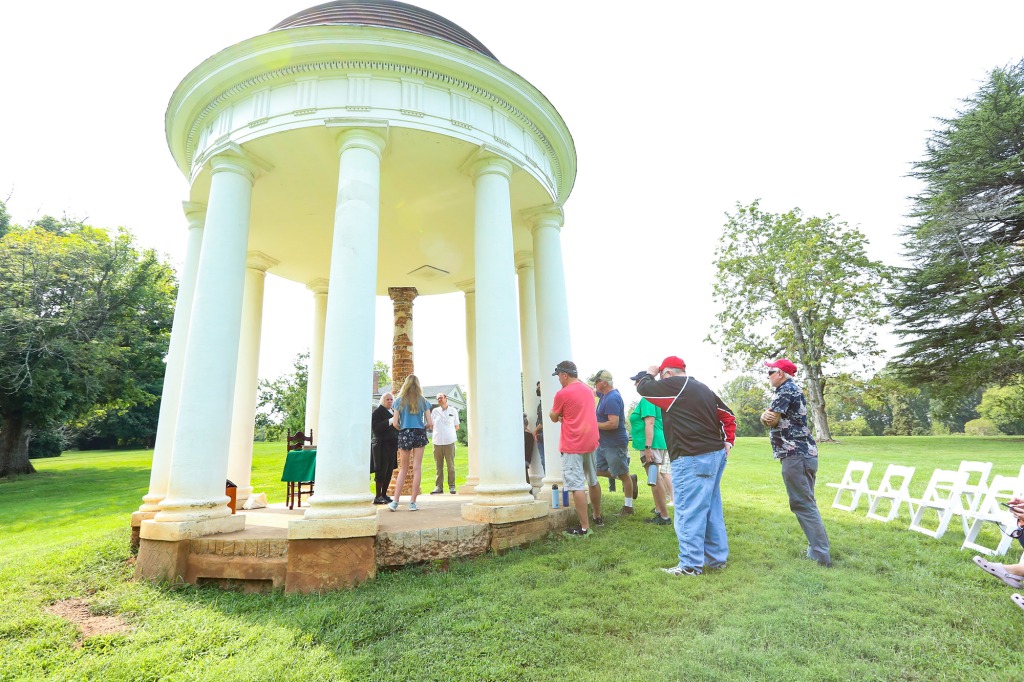
“Our memorialization project is not going to be limited to a bench and a plaque,” Walker vowed.
Even as he spoke, history buffs elsewhere on the estate were hearing about Madison’s achievements — and not his status as an “enslaver” — at special Constitution-themed tours that were scheduled after The Post exposed the woke narrative being pushed daily at the site.
Montpelier historic interpreter Zeb Gray sported a “We the People” necktie as he described the philosophical roots of Madison’s Constitution. The “brilliant” founder’s Federalist Papers were “probably the greatest piece of political analysis in world history,” Gray said.
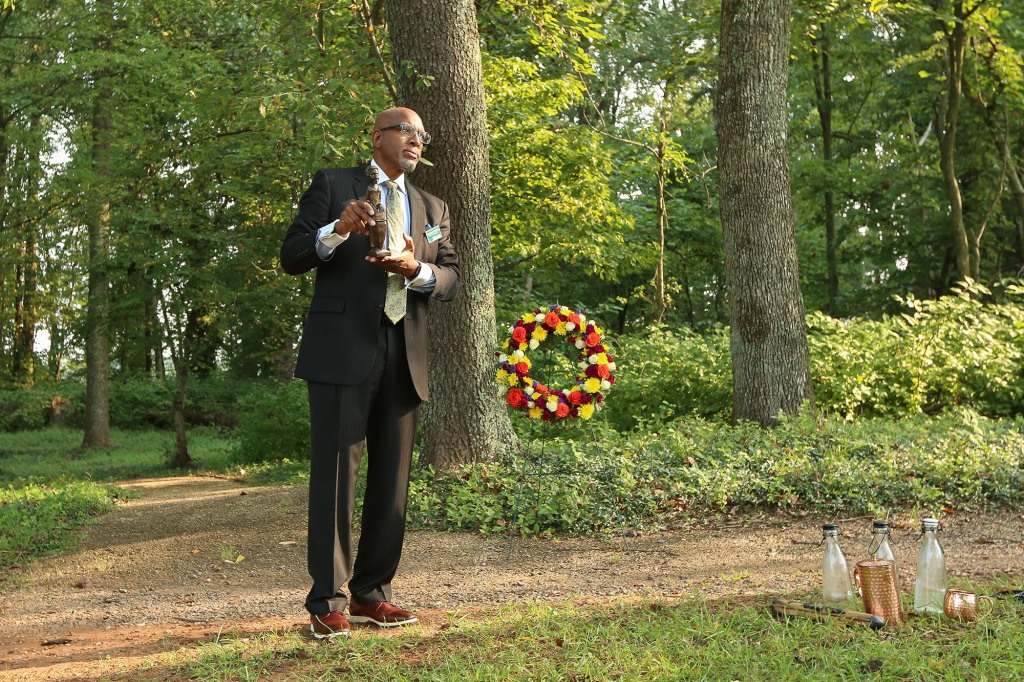
“Wow. What a free country,” marveled guide Patrick Campbell as he analyzed the First Amendment during the limited-edition Bill of Rights tour. “What a country worth defending.”
“If every civics teacher was as excited as you are, our kids might actually learn something,” one guest told Campbell.
“These are the tours they should do every day, not just a few Saturdays in September,” said a Virginia schoolteacher who returned to Montpelier for Constitution Day after experiencing its standard slavery-focused house tour earlier this year.
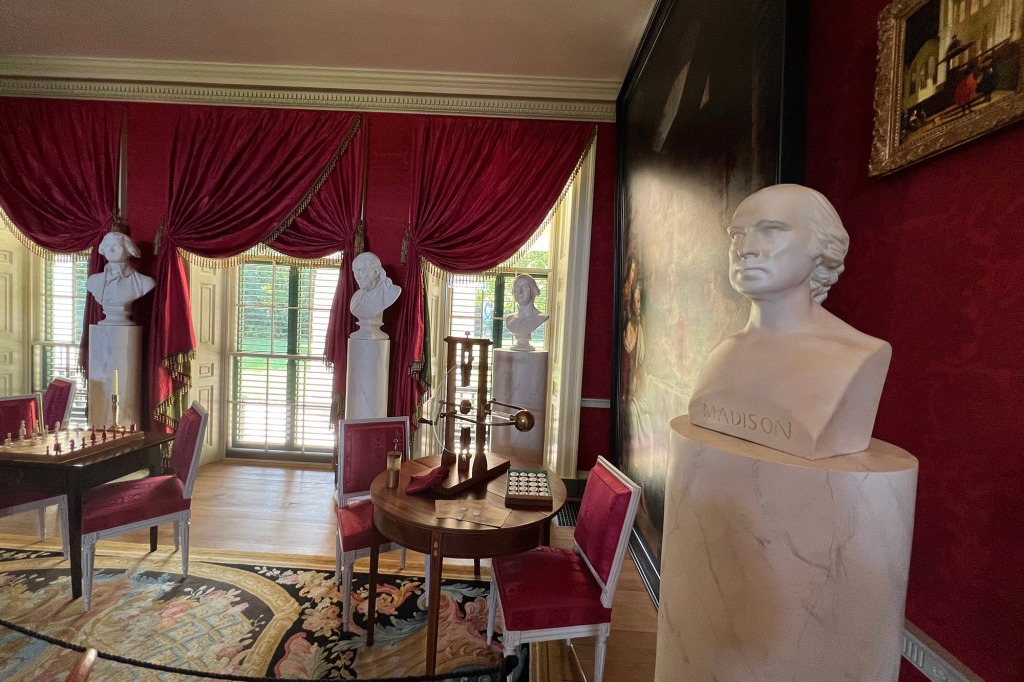
“I’ve taught civics and government and I learned things today that I’d never heard before,” the teacher added.
Proposals for a national slavery monument have circulated for decades. Most recently, in 2003, a plan to construct a National Slave Memorial in Washington, DC died in Congress when legislators opted to authorize the Smithsonian Museum of African American History and Culture instead.
“A monument honoring America’s slaves is a worthy goal,” MacKinnon said.
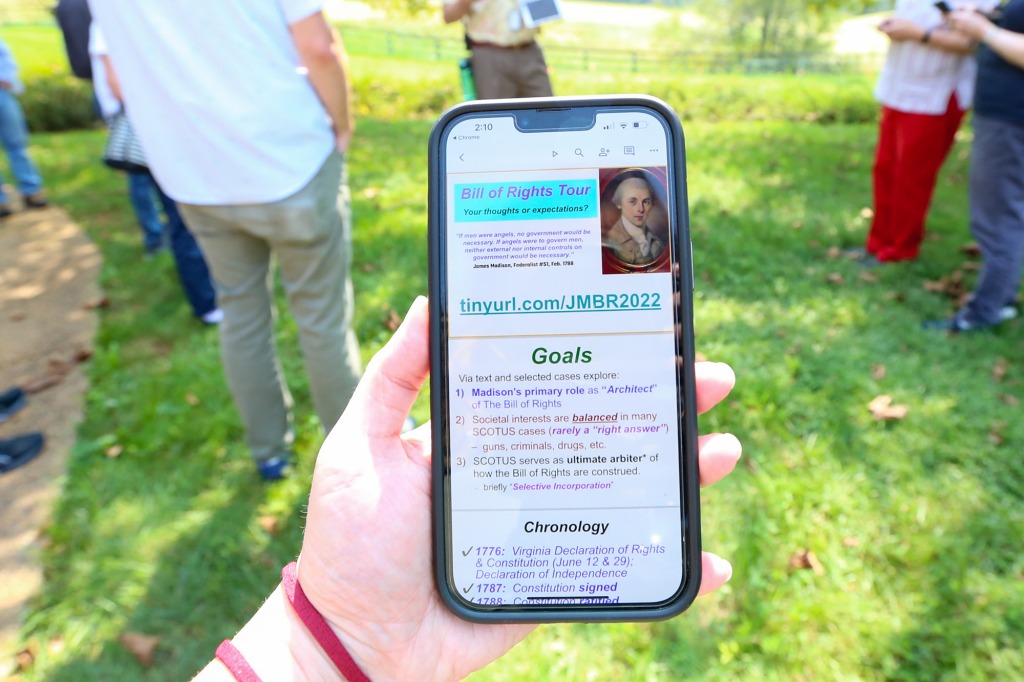
“But the only reason to build it at the home of James Madison is if you aim to deny, demean, and dismiss him by focusing on his weaknesses and not his massive contributions.”
Read the full article Here


